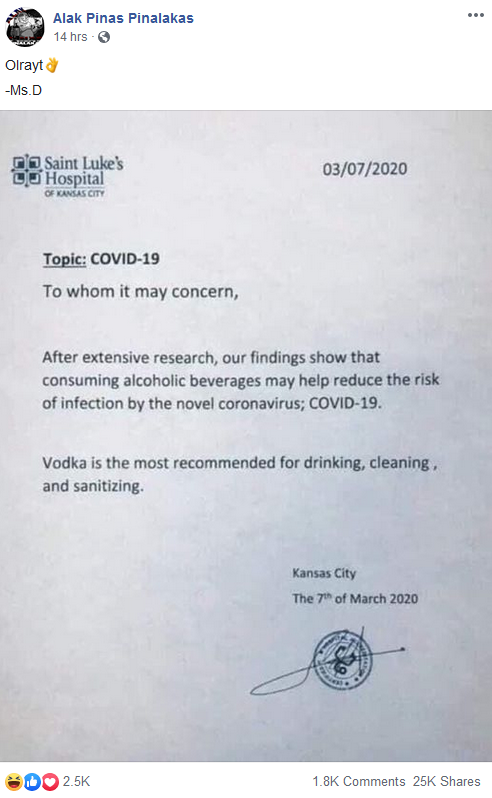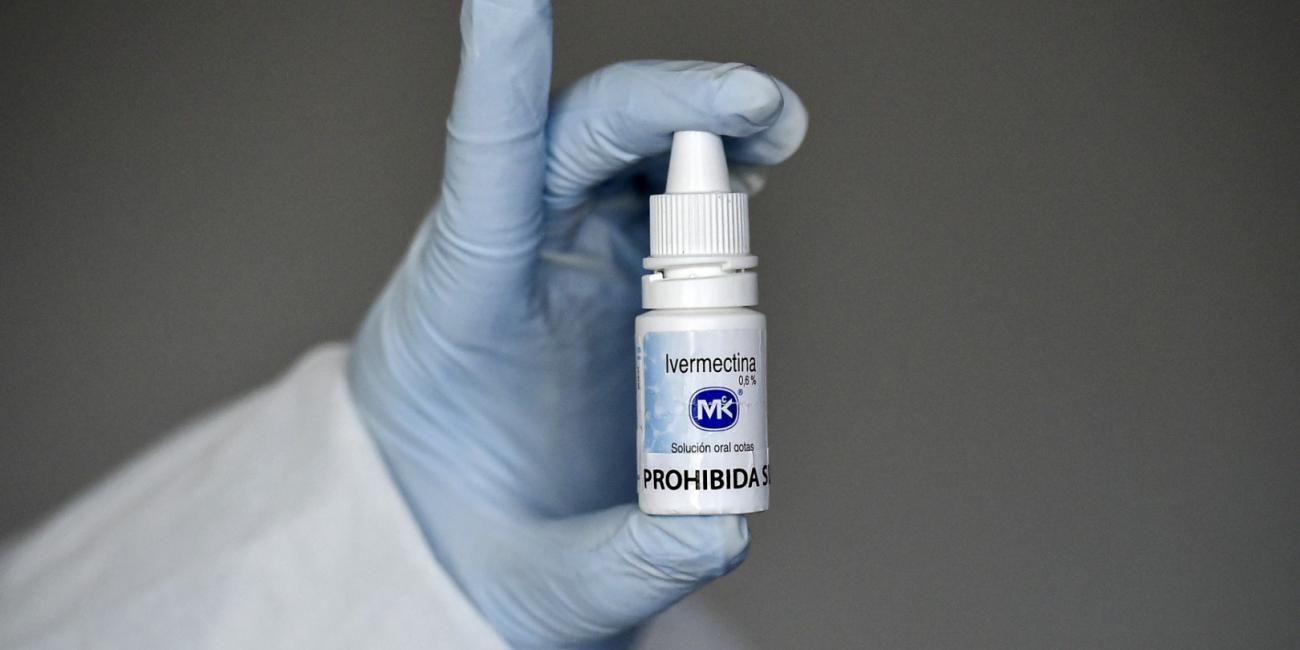
Fake US hospital letter says alcohol reduces COVID-19 risks
- This article is more than five years old.
- Published on March 11, 2020 at 22:52
- 1 min read
- By AFP USA
“After extensive research, our findings show that consuming alcoholic beverages may help reduce the risk of infection by the novel coronavirus; COVID-19. Vodka is the most recommended for drinking, cleaning, and sanitizing.”
The message was displayed on what appears to be letterhead paper dated March 7, 2020, complete with the hospital’s logo in the top left corner, an official stamp and a scrawled signature.

Screenshot of a Facebook post taken on March 11, 2020
The photo was posted on several Facebook pages in the Philippines, racking up 25,000 shares in less than 24 hours. Although most Facebook users took the recommendation as a joke, Saint Luke’s, in the midwestern state of Missouri, received enquiries regarding the letter, Lindsey Stitch, a hospital spokeswoman, told AFP.
“The information circulating is definitely a fake letter. Vodka has no impact on the coronavirus,” Stitch told AFP by email.
The hospital’s Facebook page published an official debunk of the claim on March 11.
Stitch reiterated advice published on Saint Luke’s website, recommending that people wash hands with soap and water or “alcohol-based hand sanitizer.” The page does not recommend drinking alcoholic beverages.
She also said people should not leave home if they are feeling unwell.
The novel coronavirus has spread from China around the world, killing more than 4,500 people and wreaking havoc on the global economy.
Copyright © AFP 2017-2026. Any commercial use of this content requires a subscription. Click here to find out more.
Is there content that you would like AFP to fact-check? Get in touch.
Contact us




